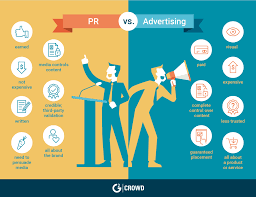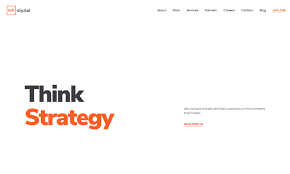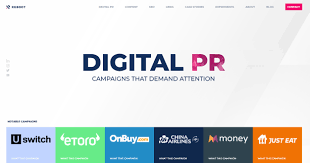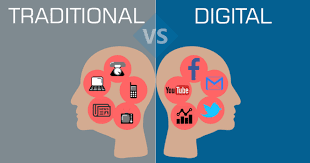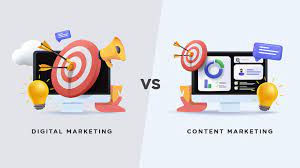Title: The Power of Content Marketing: Empowering Businesses to Connect and Thrive
Introduction:
In today’s digital era, where information is abundant and attention spans are fleeting, businesses face the challenge of capturing and retaining their target audience’s interest. This is where a proficient content marketing firm steps in, armed with the skills and expertise to help businesses navigate the ever-changing landscape of online communication. Let’s explore how content marketing firms play a pivotal role in empowering businesses to connect with their audience and thrive in a competitive market.
Crafting Compelling Content:
A content marketing firm understands that creating high-quality, engaging content is the cornerstone of any successful marketing strategy. They possess a team of skilled professionals who excel in producing captivating articles, blog posts, videos, infographics, and social media content that resonates with the intended audience.
Strategic Approach:
Content marketing firms go beyond just creating content; they develop comprehensive strategies tailored to each client’s unique goals and target demographics. By conducting thorough market research and competitor analysis, these firms identify key opportunities for growth and devise effective plans to maximize reach and engagement.
Building Brand Authority:
Establishing brand authority is crucial for gaining trust and credibility among consumers. A reputable content marketing firm helps position businesses as industry thought leaders by creating informative and authoritative content that addresses customer pain points, offers valuable insights, and showcases expertise. Through consistent delivery of valuable information, businesses can build trust with their audience while establishing themselves as go-to resources within their respective fields.
Enhancing SEO Performance:
Search engine optimization (SEO) plays a vital role in ensuring businesses’ visibility online. A proficient content marketing firm understands the intricacies of SEO algorithms and incorporates strategic keywords seamlessly into their clients’ content. By optimizing website copy, blog posts, meta tags, and other elements, they help improve search engine rankings, driving organic traffic to clients’ websites.
Engaging Social Media Presence:
In today’s interconnected world, social media platforms have become powerful tools for businesses to connect with their audience. Content marketing firms excel in crafting engaging social media content that sparks conversations, encourages sharing, and drives user engagement. By leveraging these platforms effectively, businesses can expand their reach and foster meaningful connections with their target audience.
Measuring Success:
One of the key advantages of partnering with a content marketing firm is the ability to measure the success of marketing efforts accurately. These firms employ various analytics tools to track website traffic, engagement metrics, conversion rates, and other key performance indicators. By analyzing this data, they can refine strategies and optimize content to ensure maximum impact and return on investment.
Conclusion:
In an era where consumers are bombarded with countless advertising messages daily, businesses must adopt a strategic approach to cut through the noise and engage their target audience effectively. A proficient content marketing firm serves as a valuable ally in this endeavor by creating compelling content, building brand authority, enhancing SEO performance, fostering social media engagement, and measuring success. By harnessing the power of content marketing, businesses can connect with their audience on a deeper level and thrive in today’s competitive market.
Frequently Asked Questions About Content Marketing Firms: A Comprehensive Guide
- What is an example of a company of content marketing?
- What is a content marketing firm?
- What are the 5 C’s of content marketing?
- How do I start a content marketing firm?
- What is a good example of content marketing?
- What is the role of content marketing?
- What are the 7 steps of content marketing?
- What is a content marketing company?
What is an example of a company of content marketing?
One prominent example of a content marketing company is “HubSpot.” HubSpot is a well-known inbound marketing and sales software platform that offers a range of services, including content creation and distribution. They provide businesses with the tools and resources needed to create compelling content, attract visitors, convert leads, and nurture customer relationships.
HubSpot’s content marketing services encompass various aspects, such as blog writing, social media management, email marketing campaigns, SEO optimization, and lead generation. They have a team of experienced content strategists, writers, designers, and marketers who work collaboratively to develop tailored content strategies that align with their clients’ goals and target audience.
Through their expertise in content creation and distribution, HubSpot helps businesses establish thought leadership, increase brand visibility, generate qualified leads, and drive customer engagement. Their comprehensive approach to content marketing has made them a trusted partner for numerous companies seeking to leverage the power of strategic content to grow their online presence and achieve business objectives.
What is a content marketing firm?
A content marketing firm is a specialized agency or company that provides strategic guidance and services to businesses looking to enhance their online presence and engage with their target audience through quality content. These firms have a team of professionals with expertise in various aspects of content creation, marketing, and distribution.
The primary focus of a content marketing firm is to help businesses create and distribute valuable, relevant, and consistent content across multiple channels. This content can take various forms, including blog posts, articles, social media posts, videos, infographics, white papers, and more. The goal is to attract and retain the attention of the target audience while driving profitable customer action.
Content marketing firms typically work closely with their clients to understand their business goals, target audience demographics, industry trends, and competitive landscape. Based on this information, they develop comprehensive content strategies that align with the client’s objectives.
These firms often have a deep understanding of search engine optimization (SEO) practices and incorporate relevant keywords within the content to improve organic visibility in search engine results. They also leverage social media platforms to amplify reach and engagement.
In addition to creating compelling content, content marketing firms may offer services such as content planning and ideation, editorial calendar management, content production (writing or video production), graphic design, distribution strategies (including social media management), analytics tracking for performance measurement, and ongoing optimization based on data insights.
By partnering with a content marketing firm, businesses gain access to a team of professionals who can help them navigate the complexities of online communication. These firms provide expertise in crafting persuasive messaging that resonates with the target audience while ensuring consistency across various platforms. Ultimately, the goal is to establish brand authority, increase website traffic, generate leads or conversions, and foster long-term customer relationships through effective storytelling and engagement.
What are the 5 C’s of content marketing?
The 5 C’s of content marketing are:
- Content: The first “C” emphasizes the importance of high-quality and valuable content. Content should be informative, engaging, and relevant to the target audience. It should address their pain points, provide solutions, and offer unique insights.
- Consistency: Consistency is key in content marketing. Regularly publishing new content helps build trust with the audience and establishes a reliable presence. Whether it’s blog posts, videos, podcasts, or social media updates, maintaining a consistent publishing schedule ensures that the audience stays engaged and connected.
- Channels: The third “C” refers to selecting the appropriate channels for distributing content. Understanding where the target audience spends their time online is crucial for effective content distribution. It could include websites, blogs, social media platforms, email newsletters, or even offline channels like events or print publications.
- Community: Building a community around your content is essential for fostering engagement and loyalty. Encouraging interaction through comments sections, social media discussions, or online forums helps create a sense of belonging among your audience. Engaging with your community by responding to comments and feedback also strengthens relationships.
- Conversion: The final “C” focuses on converting your audience into customers or achieving other desired outcomes such as lead generation or brand awareness. Content should be strategically designed to guide users through the buyer’s journey by incorporating clear calls-to-action (CTAs) that prompt them to take the desired action—whether it’s making a purchase, subscribing to a newsletter, or downloading a resource.
By applying these 5 C’s of content marketing—Content, Consistency, Channels, Community, and Conversion—businesses can develop effective strategies that resonate with their target audience and drive meaningful results in terms of engagement and conversions.
How do I start a content marketing firm?
Starting a content marketing firm requires careful planning and execution. Here are some steps to help you get started:
- Define your niche: Determine the specific area or industry in which you want to specialize. This will help you differentiate yourself from competitors and attract clients looking for expertise in that particular field.
- Develop a business plan: Outline your goals, target market, services offered, pricing structure, and marketing strategies. A solid business plan will serve as a roadmap for your venture and help you secure funding if needed.
- Build a talented team: Assemble a team of skilled professionals who excel in content creation, digital marketing, SEO, social media management, and analytics. Look for individuals with diverse skill sets to offer comprehensive services to clients.
- Set up your infrastructure: Establish the necessary infrastructure for your firm, including office space (if required), computers, software tools for content creation and project management, and a website to showcase your services.
- Define your service offerings: Determine the specific content marketing services you will provide to clients. This could include content strategy development, content creation (articles, blog posts, videos), social media management, SEO optimization, analytics reporting, and more.
- Create a portfolio: Start building a portfolio of successful content marketing campaigns or projects that demonstrate your skills and expertise. This will be crucial when pitching potential clients.
- Develop pricing packages: Determine how you will charge for your services—whether it’s an hourly rate or project-based pricing structure. Consider factors like the complexity of projects and the level of expertise required when setting prices.
- Market your firm: Develop a strong online presence through an optimized website and active social media profiles that showcase your expertise in content marketing. Network with industry professionals at events or through online communities to expand your reach.
- Acquire clients: Reach out to potential clients directly through cold emails or attend industry conferences where you can meet potential leads. Leverage your network and ask for referrals from satisfied clients to generate new business.
- Deliver exceptional results: Once you secure clients, focus on delivering high-quality content marketing services that exceed their expectations. Build strong relationships with clients through effective communication, timely delivery, and a commitment to their success.
Remember, starting a content marketing firm requires dedication, continuous learning, and the ability to adapt to industry trends. By providing valuable services and consistently delivering results, you can establish a reputable brand in the content marketing space and attract a steady stream of clients.
What is a good example of content marketing?
One excellent example of content marketing is the “Red Bull Stratos” campaign. Red Bull, an energy drink company, created a captivating and highly successful content marketing campaign that captured the attention of millions worldwide.
The campaign centered around Felix Baumgartner’s record-breaking freefall from the edge of space in 2012. Red Bull documented every step of the process, from Baumgartner’s training to the actual jump itself. They produced high-quality videos, articles, and social media updates that provided behind-the-scenes insights into the preparation and showcased the extreme nature of the event.
The content was not explicitly focused on promoting Red Bull as a beverage but rather on inspiring viewers with extraordinary feats and pushing boundaries. The campaign successfully generated immense buzz and engagement across various platforms, capturing the attention of millions globally.
By leveraging this unique event and creating compelling content around it, Red Bull effectively positioned itself as a brand associated with adventure, adrenaline, and pushing limits. The campaign showcased Red Bull’s commitment to supporting extreme sports and their dedication to providing experiences that go beyond just selling energy drinks.
The “Red Bull Stratos” campaign demonstrated how content marketing can be used to create valuable and shareable content that resonates with an audience. It effectively engaged viewers by telling a captivating story while subtly reinforcing Red Bull’s brand values and messaging. This example showcases how content marketing can transcend traditional advertising methods to create meaningful connections with consumers.
What is the role of content marketing?
The role of content marketing is multifaceted and crucial in today’s digital landscape. Here are some key roles that content marketing plays:
- Building Brand Awareness: Content marketing helps businesses increase their brand visibility and reach a wider audience. By creating valuable and relevant content, businesses can attract potential customers, establish brand recognition, and differentiate themselves from competitors.
- Establishing Thought Leadership: Content marketing allows businesses to position themselves as industry experts and thought leaders in their respective fields. By consistently sharing insightful and informative content, businesses can gain the trust and confidence of their target audience, ultimately establishing themselves as go-to resources.
- Driving Engagement: Engaging content is essential for capturing the attention and interest of the audience. Through compelling storytelling, informative articles, entertaining videos, or interactive infographics, content marketing aims to engage the audience, encourage interaction, and foster meaningful relationships between businesses and their customers.
- Generating Leads: Content marketing serves as a powerful lead generation tool. By creating valuable gated content such as e-books, whitepapers, or webinars, businesses can capture contact information from interested prospects in exchange for access to the content. This enables businesses to nurture leads further down the sales funnel.
- Enhancing SEO Performance: Content plays a significant role in search engine optimization (SEO). Well-optimized content with relevant keywords helps improve organic search rankings, making it easier for potential customers to discover a business when searching for related products or services online.
- Educating Customers: Content marketing allows businesses to educate their customers about their products or services. By providing valuable information about features, benefits, usage guides, or industry trends through blog posts, tutorials, or videos, businesses can help customers make informed decisions while establishing trust and credibility.
- Supporting Customer Journey: Content marketing supports customers throughout their journey with a business. From initial awareness to consideration and post-purchase support, well-crafted content helps nurture relationships with existing customers, encourage repeat purchases, and foster loyalty.
- Measuring and Refining Strategies: Content marketing enables businesses to measure the effectiveness of their marketing efforts through various analytics tools. By tracking metrics such as website traffic, engagement levels, conversion rates, and customer feedback, businesses can gain insights into what works and refine their strategies accordingly.
In summary, content marketing plays a pivotal role in building brand awareness, establishing thought leadership, driving engagement, generating leads, enhancing SEO performance, educating customers, supporting the customer journey, and measuring success. It is an integral part of a comprehensive marketing strategy that helps businesses connect with their audience and achieve their goals in the digital age.
What are the 7 steps of content marketing?
Content marketing involves a strategic approach to creating and distributing valuable content to attract and engage a target audience. While the specific steps may vary depending on the source, here are seven fundamental steps often followed in content marketing:
- Define Your Goals: Begin by clearly defining your content marketing goals. What do you want to achieve? Whether it’s increasing brand awareness, generating leads, or driving conversions, having well-defined goals will guide your content creation process.
- Identify Your Target Audience: Understand who your target audience is and what their needs, interests, and pain points are. Conduct thorough research to create buyer personas that represent your ideal customers. This step is crucial for tailoring your content to resonate with your intended audience.
- Develop a Content Strategy: Based on your goals and target audience insights, develop a comprehensive content strategy. Determine the types of content you will create (such as blog posts, videos, infographics), establish a consistent brand voice and tone, and decide on the platforms where you will distribute your content.
- Create High-Quality Content: Now it’s time to start creating compelling content that aligns with your strategy. Focus on providing value to your audience by addressing their challenges or offering solutions. Ensure that your content is well-researched, informative, engaging, and visually appealing.
- Optimize for SEO: Incorporate search engine optimization (SEO) techniques into your content creation process to improve visibility in search engine results pages (SERPs). Conduct keyword research to identify relevant keywords and strategically incorporate them into your content elements such as titles, headings, meta descriptions, and alt tags.
- Distribute and Promote Your Content: Once you’ve created valuable content, it’s essential to distribute it effectively across various channels. Share it on social media platforms relevant to your target audience, leverage email marketing campaigns, collaborate with influencers or industry partners for wider reach, and consider paid advertising options if appropriate.
- Measure and Analyze Results: Regularly monitor and analyze the performance of your content marketing efforts. Track metrics such as website traffic, engagement rates, conversions, and social media interactions. Use analytics tools to gain insights into what is working well and where improvements can be made. Adjust your strategy accordingly to optimize results.
Remember that content marketing is an iterative process. Continuously refine your strategy based on data-driven insights and feedback from your audience to ensure ongoing success in achieving your goals.
What is a content marketing company?
A content marketing company is a specialized agency or firm that provides strategic planning, creation, and distribution of high-quality content to help businesses achieve their marketing goals. These companies focus on developing and implementing content strategies that attract, engage, and retain the target audience.
Content marketing companies understand the importance of creating valuable and relevant content to establish a strong online presence, build brand awareness, drive website traffic, generate leads, and ultimately increase conversions. They work closely with businesses to align their content with their overall marketing objectives and target audience preferences.
These companies typically offer a range of services that may include:
- Content Strategy: Developing a comprehensive plan that outlines the goals, target audience, messaging, content formats, distribution channels, and metrics for success.
- Content Creation: Producing various forms of content such as blog articles, whitepapers, e-books, videos, infographics, social media posts, email newsletters, and more.
- SEO Optimization: Incorporating search engine optimization techniques into the content to improve organic visibility in search engine results pages (SERPs).
- Content Distribution: Ensuring that the created content reaches the intended audience through channels such as websites, social media platforms, email campaigns, influencer collaborations, guest blogging opportunities, and more.
- Analytics and Reporting: Monitoring and analyzing key performance indicators (KPIs) to measure the effectiveness of content marketing efforts. This includes tracking website traffic metrics like page views, bounce rates, time on page; social media engagement metrics like likes shares comments; conversion rates; lead generation; and other relevant data points.
Content marketing companies leverage their expertise in understanding consumer behavior trends and market dynamics to create compelling narratives that resonate with the target audience. By providing valuable information or entertainment through their content offerings rather than overtly promoting products or services directly, these companies help businesses build trust with their audience while positioning themselves as industry thought leaders.
Ultimately, a content marketing company plays a crucial role in helping businesses establish a strong online presence, engage their audience, and achieve their marketing objectives through the strategic use of content.



